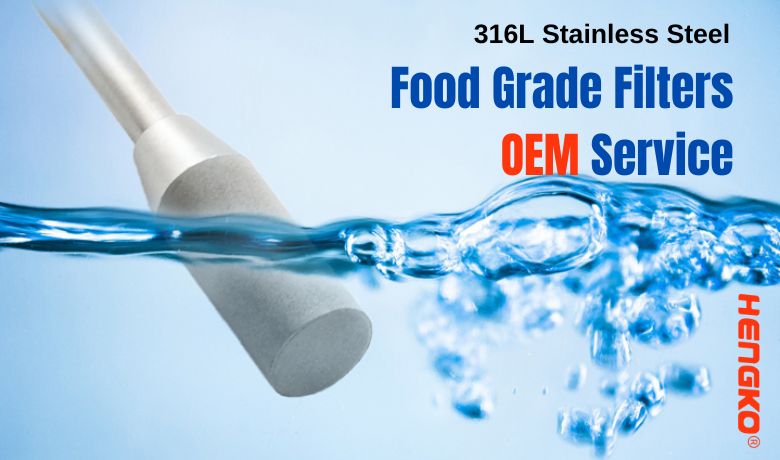-
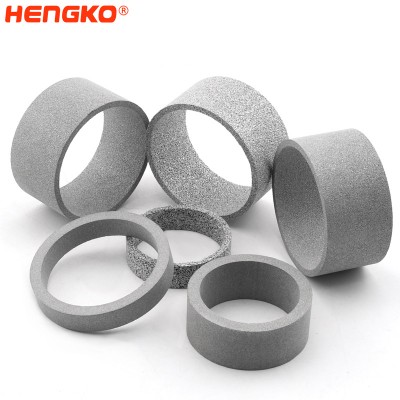
Stainless Steel Sintered Porous Metal Filter Tubes Porosity Down to 0.2 µm – In F...
Pore size:0.2-100microns Materials: SS Metal Porosity:30%~45% Working Pressure:3MPa Operating Temperature:600℃ Applications for sintered porous metal ...
View Detail -
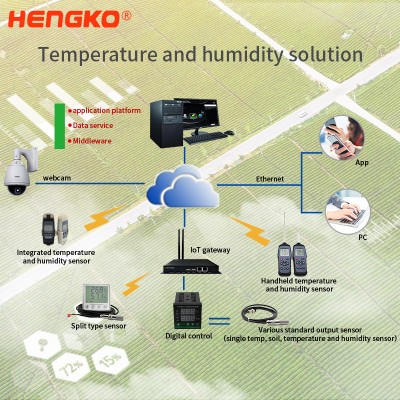
IoT Temperature and Huimidirty Sensor Monitoring for Food Quality Service Control ̵...
IoT Temperature and Huimidirty Sensor Restaurants, bars, food production and hospitality companies worldwide are responsible for executin...
View Detail -
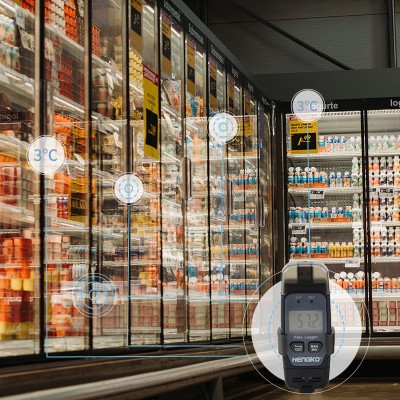
Remote Temperature and Relative Iot humidity monitoring system for Food and Beverage Co...
Temperature and Humidity monitoring is an ideal solution for industries/businesses where temperature and humidity maintenance is of utmost importance. With t...
View Detail -
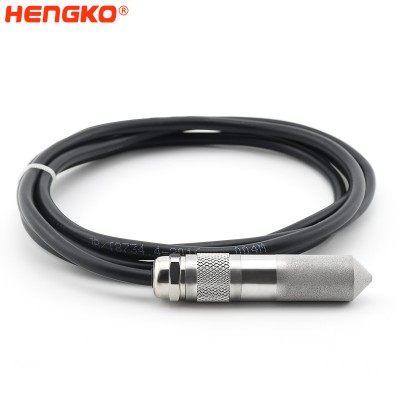
Wholesale custom dustproof waterproof RHT20 digital high temperature and relative humid...
HENGKO temperature and relative humidity sensor based on RHT-H series sensor which gives good accuracy and covers a great range of temperature and humidity. ...
View Detail -
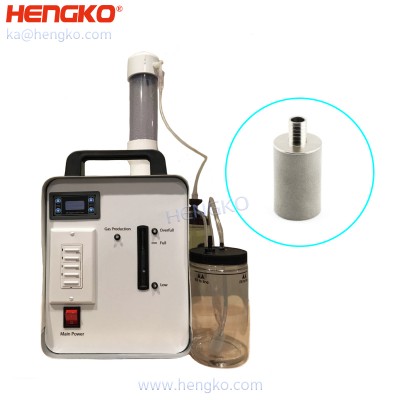
hydrogen water machines accessories food grade sintered porous stainless steel filter h...
Sintered air stone diffusers are often used for porous gas injecting. They have different pore sizes(0.5um to 100um) allowing tiny bubbles to flow. They can ...
View Detail -
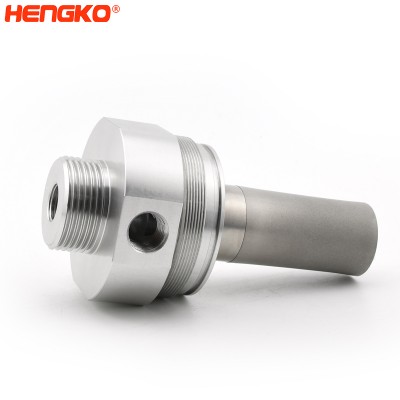
Stainless steel harsh environment filter (male thread sintered porous metal filter) for...
Product Features Remove liquids and solids from gas samples Remove solids and gas bubbles from liquid samples Coalesce and separate two liquid phases Filer s...
View Detail -
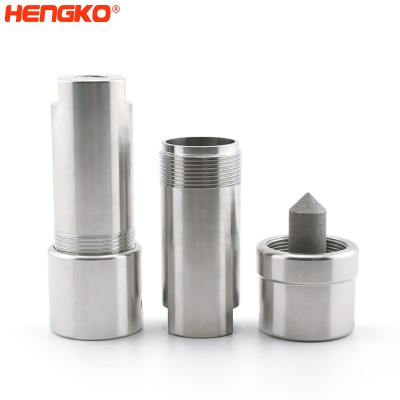
3 stage sterile stainless steel high pressure compressed air filters assemblies for foo...
HENGKO manufactures filter elements in a broad range of materials, sizes, and fittings so they can be easily specified with the characteristics and configura...
View Detail -
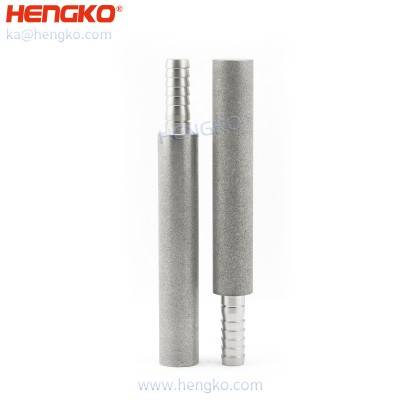
Air sparger bubble diffuser carbonation stones provide the quickest method for infusing...
HENGKO Diffusion Stones, or 'Carbonations Stones', are commonly used to aerate the wort before fermentation, which helps ensure a healthy start to the fermen...
View Detail -
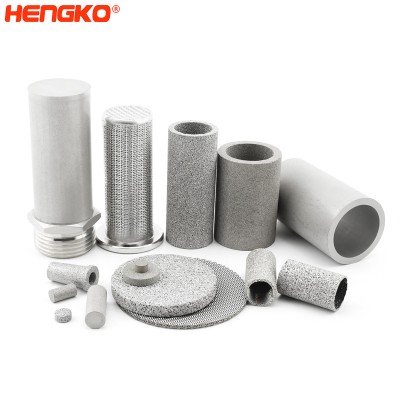
Food grade microns 316L stainless steel powder sintered porous metal elements filter me...
Product Describe The Candle Filters are installed for clarification and recovery applications from liquids with low solids content ranging from 5% to PPM lev...
View Detail -
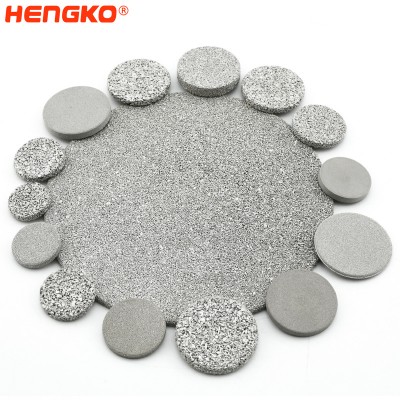
Preferential supply 0.2-120um sintered 316 stainless steel porous metal backwash strain...
Introducing the HENGKO Stainless Steel Filter Disc, the ultimate solution for all your environmental protection, petroleum, natural gas, chemical, environme...
View Detail -
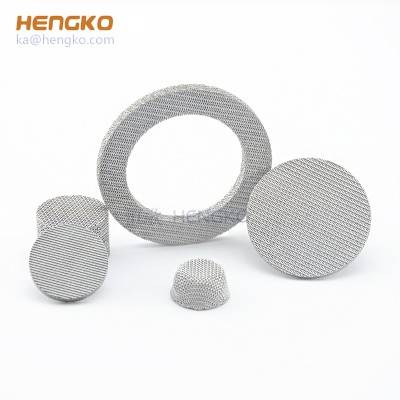
Long service life sintered stainless steel filter disc parts – pure water treatme...
Sintered Mesh filter disc uses a five-layer sintered composite mesh structure to make a filter that combines filtration efficiency with strength. Typical mes...
View Detail
What Factors You Should Consider When Choose filter for food filtration System ?
Choosing the right filter for your food filtration system requires careful consideration of several factors to ensure optimal performance and product quality. Here are some key aspects to keep in mind:
1. Contaminants to be Removed:
* Particle Size and Type: Identify the size and type of particles you want to remove from the food product. This could be sediment, haze, microbes, or even specific molecules. Depth filters excel at capturing various sized particles, while membranes offer a more precise separation based on pore size. Screen filters target larger debris.
* Chemical Compatibility: Ensure the filter material is compatible with the food product and won't leach chemicals or alter the taste. Stainless steel is a common choice for its durability and resistance to corrosion from various food products.
2. Food Product Characteristics:
* Viscosity: The viscosity of the liquid being filtered significantly impacts filter selection. Pressure filters work well for viscous liquids, while vacuum filters are better suited for low viscosity products.
* Flow Rate Requirements: Consider the desired processing speed and choose a filter with a sufficient flow rate capacity to meet your production needs.
3. System Considerations:
* Operating Pressure and Temperature: The filter needs to withstand the pressure used in your system and operate effectively at the processing temperature of the food product.
* Cleaning and Maintenance: Regular cleaning and maintenance are crucial for filter performance. Choose a filter that allows for easy cleaning and consider factors like backwashing capabilities or disposable cartridge options.
4. Economic Factors:
* Initial Investment: There's a range of costs associated with different filter types. Consider the upfront cost of the filter itself and housing, if applicable.
* Operational Costs: Evaluate ongoing costs like filter replacement frequency, cleaning requirements, and energy consumption.
5. Regulatory Compliance:
* Food Safety Regulations: Ensure the chosen filter material and design meet food safety regulations and standards set by relevant authorities.
By carefully considering these factors, you can select a food filtration system that effectively removes targeted contaminants, maintains product quality, and aligns with your specific processing needs. Consulting with a filtration specialist can be valuable to get expert recommendations based on your unique application.
Some Application of Food Industry
HENGKO's professional-grade 316L stainless steel filters find applications across various stages in the food processing,
beverage industry, and agricultural sectors. Here's a list highlighting some key applications with brief explanations:
Sugar and Corn Processing:
*Sugar Beet Processing:
HENGKO filters can be used to remove impurities and clarify sugar beet juice during processing for whiter sugar.
*High Fructose Corn Syrup (HFCS) Production:
These filters can aid in separating solids from corn syrup during its production, ensuring a clear and consistent final product.
*Corn Milling and Starch Production:
HENGKO filters can be used to separate starch particles from other corn components, leading to purer starch products.
*Corn Gluten and Cornstarch Separation:
These filters can help efficiently separate corn gluten from cornstarch during processing.
Beverage Industry:
*Winemaking (Lees Filtration):
HENGKO filters can be used for lees filtration, a process that removes spent yeast cells (lees) from wine
after fermentation, resulting in a clearer and more stable final product.
*Beer Brewing (Mash Filtration):
These filters can be employed in mash filtration, separating the wort (liquid extract) from spent grains after
mashing, contributing to a clearer beer.
*Juice Clarification:
HENGKO filters can help clarify fruit juices by removing unwanted pulp or sediments, leading to a smoother
and more appealing juice.
*Distilleries Filtration:
These filters can be used in various stages of spirits production, such as removing impurities after fermentation
or filtering spirits before bottling.
Other Food Processing Applications:
*Flour Milling:
HENGKO filters can be used to remove bran and other unwanted particles from flour, resulting in a finer and more consistent product.
*Yeast and Enzyme Removal:
These filters can help separate yeast or enzymes used in food production processes, ensuring a pure final product.
*Edible Oil Filtration:
HENGKO filters can be employed to clarify and purify edible oils by removing impurities or residual solids.
*Palm Oil Fractionation:
These filters can be used to separate different fractions of palm oil during processing, leading to specific oil types for various applications.
Agricultural Applications:
*Agricultural Food Dewatering:
HENGKO filters can be used to remove excess water from agricultural products like washed vegetables or processed fruits, extending their shelf life and improving processing efficiency.
*Food Processing Wastewater Treatment:
These filters can help clarify wastewater generated during food processing, contributing to cleaner water discharge and improved environmental impact.
*Animal Nutrition:
HENGKO filters can be used to separate and clarify liquid components in animal feed production.
Dust Collection:
*Food Processing and Dairy Industries:
HENGKO filters can be employed in dust collection systems to remove airborne particles like flour dust or powdered milk, ensuring a cleaner and safer working environment.
*Grain Elevators:
These filters can help control dust generated during grain handling and storage, preventing explosions and respiratory hazards.
Biofuel Production:
*Bioethanol Production:
HENGKO filters can be used in various stages of bioethanol production, such as separating fermented broth or removing impurities before final distillation.
This list provides a general overview.
HENGKO filters' specific applications will depend on the filter's micron rating, size, and configuration.
It's always best to consult with HENGKO or a filtration specialist to determine the most suitable filter
for your specific needs in the food processing, beverage, or agricultural sectors.
